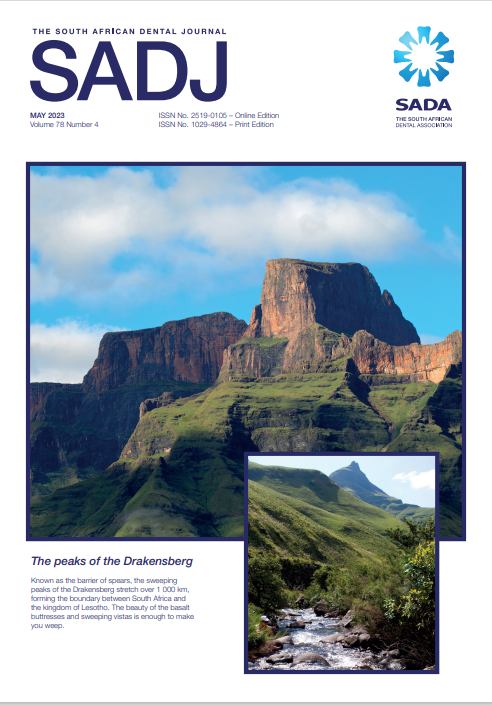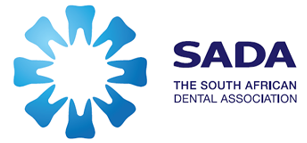Dear Managing Editor
Keywords:
feasibility, competenciesAbstract
Dental schools across the world aim to prepare and train dental graduates to be competent and fi t to practice independently. However, educators seem to differ in their objectives and ideals. Globally, offi cial documents on competencies for the new dental graduates were published – The American Dental Education Association (ADEA) approved competencies;1 the Canadian dental programmes adopted a national consensus for competencies in 1994;2 the General Assembly of the Association for Dental Education in Europe approved competencies for the European Dentist;3 and the Dental Council of New Zealand in 2012.4
Downloads
References
Ditmyer M, Mobley C, Davenport W. Evaluation of an integrative model for professional development and research. JDE. 2014;78:368–79. doi: 10.1002/j.0022
Gerrow J, Murphy J, Boyd M. Review and revision of the competencies for a beginning dental practitioner in Canada. JCDA. 2007;73(2):157–60
Cowpe J, Plasschaert A, Harzer W, Vinkka-Puhakka H, Walmsley A. Profi le and competences for the graduating European dentist – update 2009. Eur J Dent Educ. 2010;14:193–202. https://doi.org/10.1111/j.1600-0579.2009.00609.x0337.2014.78.3.tb05687.x
Dental Council of New Zealand (DCNZ). Competency standards and performance measures for dental therapists. DCNZ, Wellington, New Zealand (2012) Available at: http://www.dentalcouncil.org.nz/Documents/Policy/ TherapistsCompetencyStandardsMeasures.pdf. [accessed 03/05/23]
Van Heerden B. Effectively addressing the health needs of South Africa’s population: The role of health professions education in the 21st century. S. Afr Med J. 2013;103:21–2. https://doi.org/10.7196/SAMJ.6463National Planning Commission. National Development Plan: Vision for 2030. Pretoria, South Africa (2011): The Presidency of the Republic of South Africa
Mayosi, B.M., Flisher, A.J., Lalloo, U.G., Sitas, F., Tollman, S.M., & Bradshaw, D. (2009). The burden of non-communicable diseases in South Africa. The Lancet, 374(9693), 934-947Achoki, T., Sartorius, B., Watkins, D., Glenn, S.D., Kengne, A.P., Oni, T., ... & Naghavi, M. (2022). Health trends, inequalities, and opportunities in South Africa’s provinces, 1990–2019: fi ndings from the Global Burden of Disease 2019 Study. J
Epidemiol Community Health, 76(5), 471-481Brady, E., Castelli, M., Walker, R., Grayling, M., Alaba, O., & Chola, L. (2022). The prevalence and social determinants of multimorbidity in South Africa. World Medical & Health PolicyZawada B. Invisible statues of colonisation: Regulatory curriculum requirements in South African higher education. Africa Education Review. 2020 May 1;17(3):142-57
Bhutta, Z.A., Chen, L., Cohen, J., Crisp, N., Evans, T., Fineberg, H., ... & Zurayk, H. (2010). Education of health professionals for the 21st century: a global independent Commission. The Lancet, 375(9721), 1137-1138Begum N, Saini R. Decolonising the curriculum. Political Stud. Rev. 2019;17:196-201. https://doi.org/10.1177/1478929918808459
Du Plessis, P. (2021). Decolonisation of education in South Africa: Challenges to decolonise the university curriculum. South African Journal of Higher Education, 35(1), 54-69Ali, K., Alhaija, E.S.A., Raja, M., Zahra, D., Brookes, Z.L., McColl, E., ... & Daher, H.O. (2023). Blended learning in undergraduate dental education: a global pilot study. Medical Education Online, 28(1), 2171700Tukuru, M.O., Snyman, L., Postma,
TC., & van der Berg-Cloete, S.E. (2021). Dentistry in South Africa and the need for management and leadership training. South African Dental Journal, 76(9), 532-536
Downloads
Published
Issue
Section
License

This work is licensed under a Creative Commons Attribution-NonCommercial 4.0 International License.





.png)